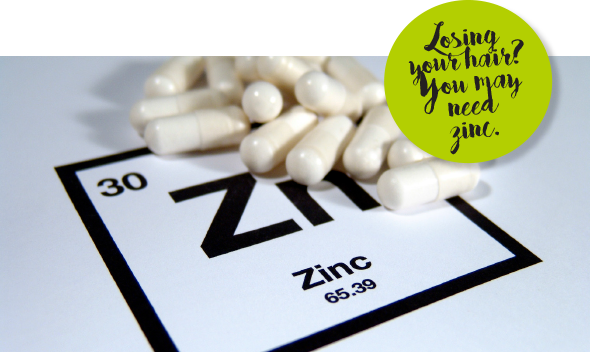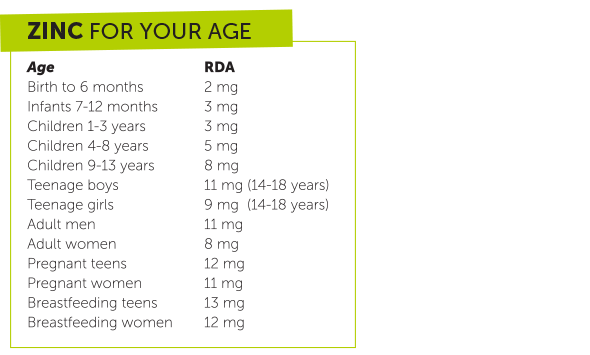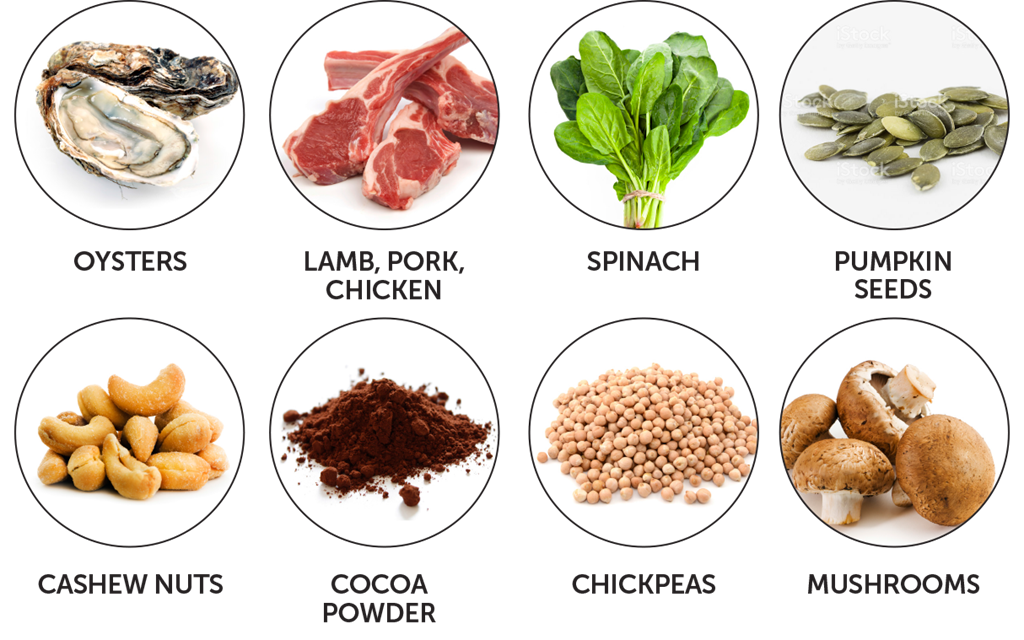
Zinc is an essential mineral that we all need in small amounts to stay healthy. It is found in every cell and helps many
important bodily functions. These include proper immune function, metabolism, wound healing, blood clotting, and
thyroid function.
Zinc is also important during infancy, childhood, adolescence and pregnancy. And if you want a keen sense of taste and smell,
you need zinc.
As the body doesn’t have a specialised zinc storage system, we need a steady daily intake. How much you need depends on your age.

Low in zinc
Symptoms of zinc deficiency include:
- Loss of appetite.
- Weight loss.
- Hair loss.
- Pale complexion.
- Rough, dry skin.
- Eye and skin sores.
- Slow wound healing.
- Frequent infections.
- Poor sense of taste and smell.
- Stunted growth.
- Mental lethargy.
- Irritability.
- Diarrhoea.
- Nausea.
- Fertility problems in both men and women.
These symptoms are not completely unique to zinc deficiency, so the condition can be difficult to diagnose. This means that
millions of people are zinc deficient without knowing it. Many people are also oblivious of this condition, especially since extreme
zinc deficiencies are rare.
Certain groups are also at a higher risk for zinc deficiency. These include:
- Alcoholics: alcohol decreases zinc absorption and increases zinc loss through urination.
- Vegetarians: meat is a rich source of zinc. Because vegetarians don’t eat meat, they may be at a higher risk for
nutrient deficiencies, including zinc deficiency. - Pregnant and breastfeeding women: a developing foetus and infant needs high amounts of zinc. If pregnant and
breastfeeding women don’t increase their zinc intake, they may be at risk for zinc deficiency. This will also affect the health
of the baby. - People with digestive disorders: digestive diseases, like ulcerative colitis and Crohn's disease, can decrease zinc
absorption and increase the amount of zinc lost in the urine. - People with sickle cell disease: this condition has been associated with low levels of zinc. The reason for this is unknown.
- People who supplement iron: taking iron in high doses can interfere with zinc absorption.
- People who take diuretics: diuretics can increase zinc excretion by 60%, and deplete body tissues of zinc stores.
Zinc it up Get your daily dose and prevent zinc deficiency by adding these zinc-rich foods to your diet.
Zinc can also be supplemented. But, this is not recommended. It is best to get your zinc requirements through your diet.
Supplements should only be used if you have been diagnosed with a severe zinc deficiency or when advised by your doctor.





 Publications
Publications
 Partners
Partners











